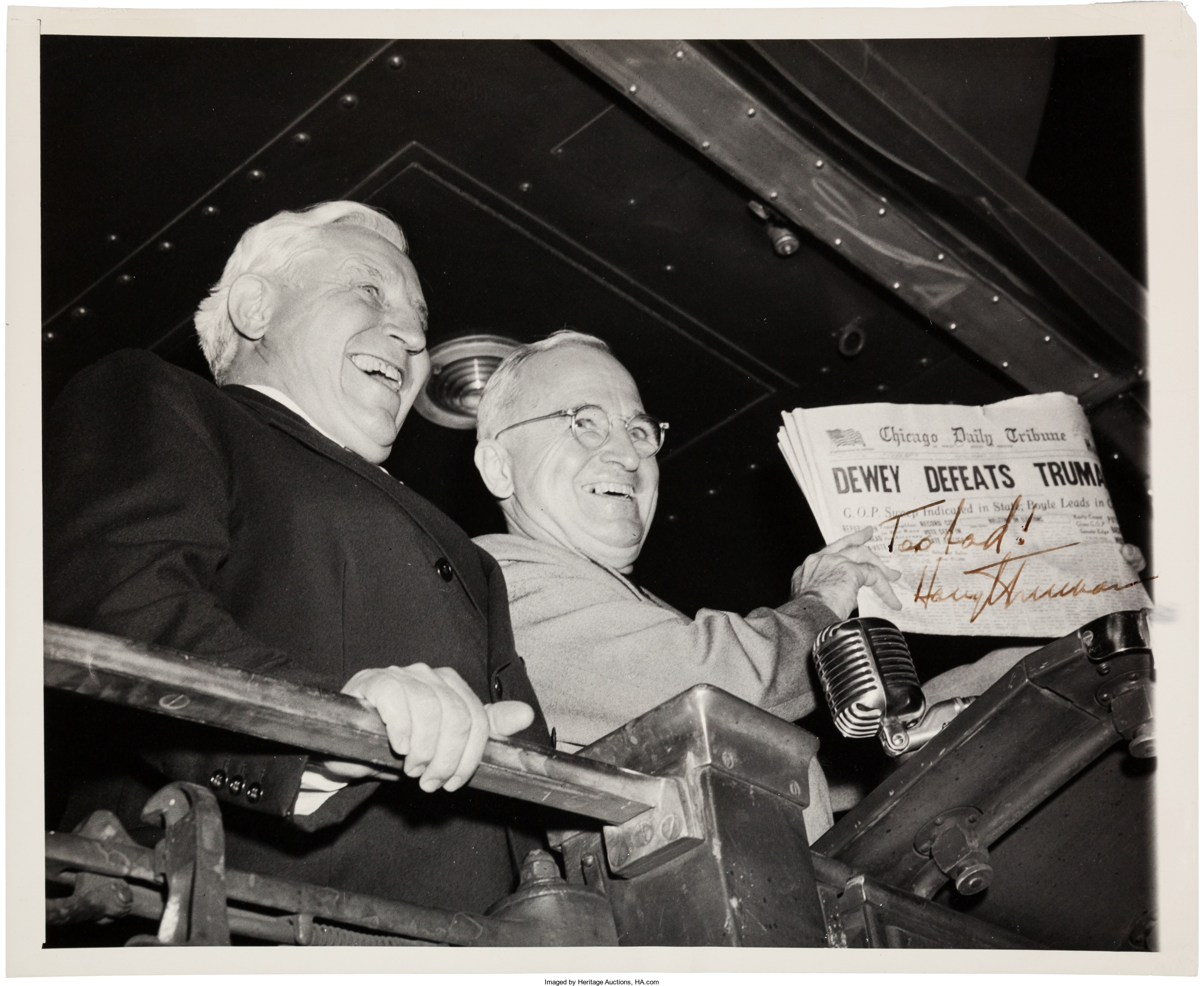
“If you can’t stand the heat, stay out of the kitchen.”
“The buck stops here!”
“Give me a one-handed economist. All my economists say, ‘On the one hand … on the other.’”
– Quotes attributed to President Harry S. Truman
By Jim O’Neal
It was during Harry S. Truman’s years that America irrevocably joined the community of nations. The phrase “United Nations” had occurred to Franklin Delano Roosevelt in the middle of the night during the bleak Christmas of 1941, while Winston Churchill was a guest at the White House. In its Jan. 10, 1942, issue, Time reported that “a new phrase, the United Nations” had slipped into the world’s vocabulary.
The year before, a Fortune survey had found that barely 13 percent of the electorate wanted to see the United States in any international organization. However, by 1944, 68 percent did and college students endorsed the proposal to send a U.S. delegation to a permanent U.N. by 50 to 1. The House, on a motion by J. William Fulbright from Arkansas to support “the creation of appropriate international machinery to establish and maintain lasting peace among the nations of the world … and participation by the U.S. therein,” resolved 360 to 20 to do so.
In the Senate, the measure also had bipartisan support.
Competition was fierce between Philadelphia, Atlantic City, Chicago, San Francisco and the Black Hills of South Dakota versus New York for the honor of providing the U.N. headquarters with a tax-free location. Only tiny Greenwich, Conn., voted not to receive it, probably more about an anti-One World sentiment.
Then there was the dramatic speech by U.S. Sen. Arthur Vandenberg making his historic pivot toward the viability of international independence that was given a standing ovation by senators of both parties. The press hailed him for delivering a speech of “unquestioned greatness” … “the most important address to come from the senate in the last 80 years” … “a courageous pledge to meet all aggression with force” … “a promise on no more Munichs.”
In the excitement, no one heard a shot fired on the other side of the world. Returning from Paris in a rage, Ho Chi Minh declared the independence of Vietnam, proclaimed himself president and took to the hills. The State Department yawned. After all, these were only natives who could be handled by a few companies of U.S. Marines and even that wouldn’t be necessary. The French Foreign Legion was on hand to suppress any issues.
Besides, we had more important work to rescue and rebuild our Allies in Europe with the new Marshall Plan. Remote places like Korea and Vietnam could wait as we established world order and focused on our domestic priorities. War was now passé and polls confirmed we would have peace for the rest of the 20th century.
As usual, the future would be laden with surprises.
 Intelligent Collector blogger JIM O’NEAL is an avid collector and history buff. He is President and CEO of Frito-Lay International [retired] and earlier served as Chairman and CEO of PepsiCo Restaurants International [KFC Pizza Hut and Taco Bell].
Intelligent Collector blogger JIM O’NEAL is an avid collector and history buff. He is President and CEO of Frito-Lay International [retired] and earlier served as Chairman and CEO of PepsiCo Restaurants International [KFC Pizza Hut and Taco Bell].
